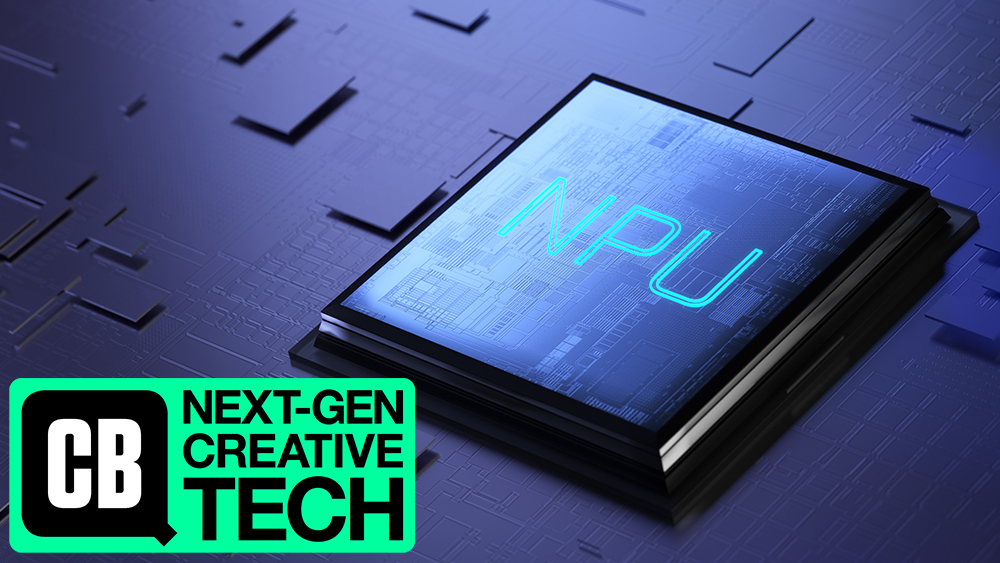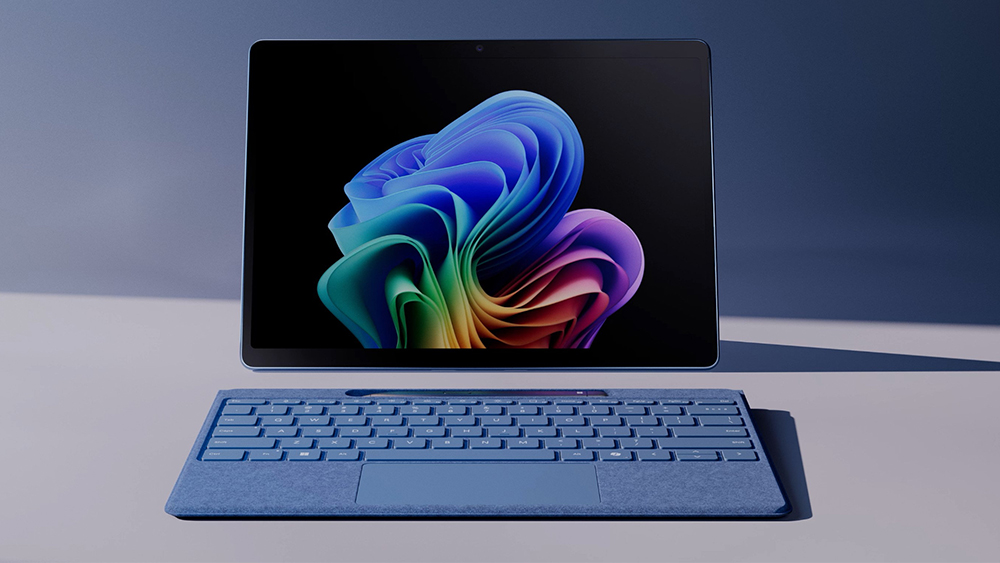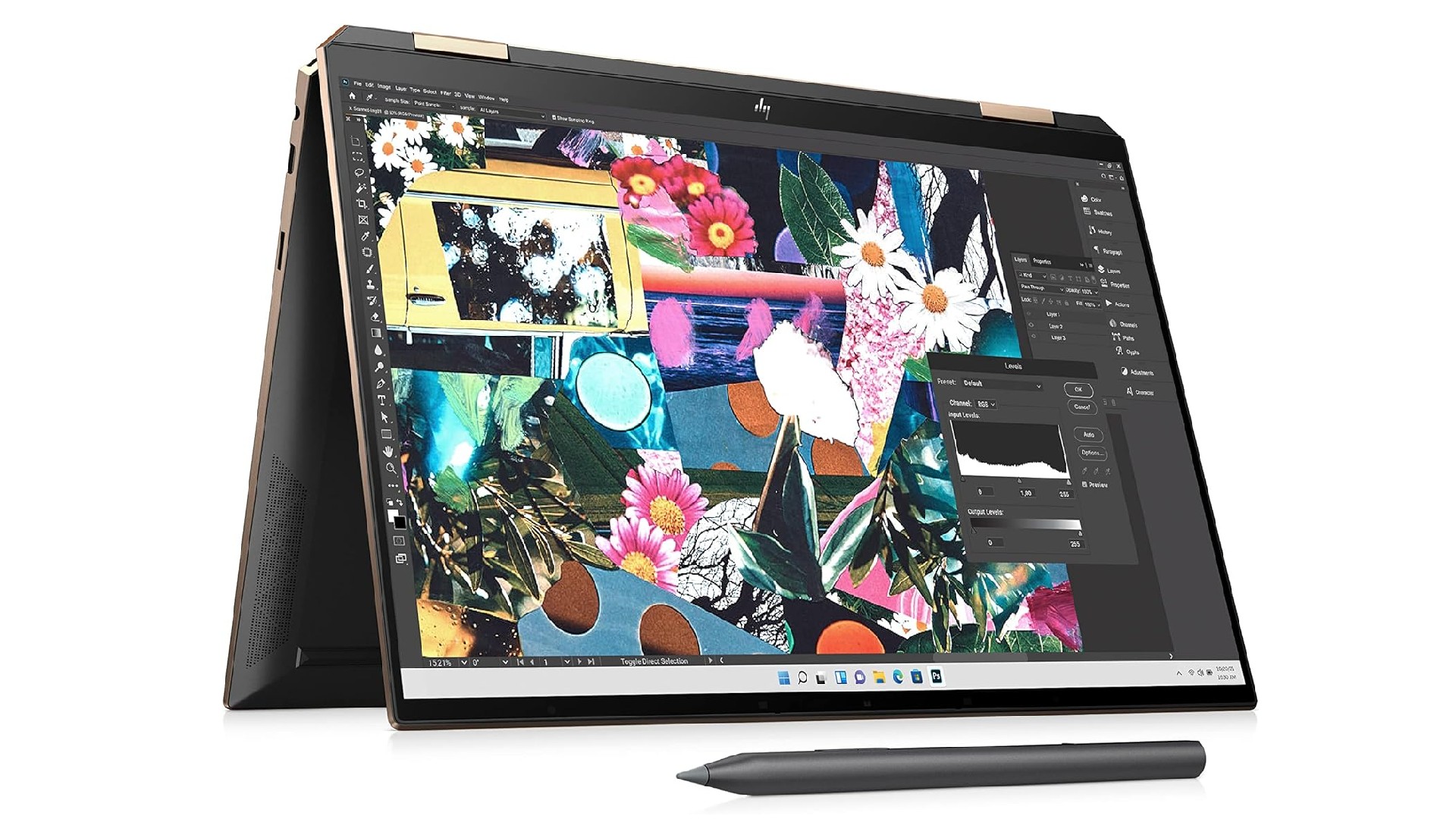
Sign up to Creative Bloq's daily newsletter, which brings you the latest news and inspiration from the worlds of art, design and technology.
You are now subscribed
Your newsletter sign-up was successful
Want to add more newsletters?

Five times a week
CreativeBloq
Sign up to Creative Bloq's daily newsletter, which brings you the latest news and inspiration from the worlds of art, design and technology.

Once a week
By Design
Sign up to Creative Bloq's daily newsletter, which brings you the latest news and inspiration from the worlds of art, design and technology.

Once a week
State of the Art
Sign up to Creative Bloq's daily newsletter, which brings you the latest news and inspiration from the worlds of art, design and technology.

Seasonal (around events)
Brand Impact Awards
Sign up to Creative Bloq's daily newsletter, which brings you the latest news and inspiration from the worlds of art, design and technology.
What is an AI laptop? This is a question you might have found yourself asking if you've been paying attention to the latest releases from the big laptop makers like Asus, Dell, Microsoft, HP, MSI and more. Is it just marketing blurb, or does it actually mean anything? And do you need an AI laptop? We'll aim to break through the jargon and answer those questions in this guide.
Artificial intelligence, or AI, is transforming every aspect of tech at the moment, and that includes one of the main tools we use day in, day out: the laptop. But with much of the focus on AI being around software, and often cloud-based software, what does hardware have to do with it? Read on to learn everything you need to know about AI laptops and NPUs.
What is an AI laptop?
As we've seen in our comparison of the best AI laptops, the phrase isn't just a buzz word. An AI laptop has a key component that sets it apart from previous generations of PC: an NPU. And while the uses for the new capabilities at the moment may be limited, they're likely to grow exponentially in the coming years, potentially putting AI laptops among the best laptops for graphic design and the best laptops for 3D modelling.
This article is part of our Next Gen Creative Tech week.
What is an NPU?
AI laptops look like normal laptops and work like normal laptops. You open them up, use whatever operating system you have installed and you can use the usual creative software, your web browser, Word documents or whatever else you normally use. The difference is that AI laptops contain a specialised piece of hardware called a Neural Processing Unit (NPU) alongside the traditional CPU and GPU.
So what's an NPU? Well, most people will be familiar with the fact that a laptop has a CPU, or central processing unit, which is the "brain" that lies at the heart of every laptop, and handles general computing tasks. More graphically powerful laptops will also have a dedicated GPU, or graphics processing unit, which handles graphics-intensive workloads such as video editing and gaming (cheaper laptops have integrated graphics on the CPU itself).
An NPU or neural processing unit is a relatively new type of processor designed for a data-heavy parallel computing. They can more efficiently process masses of multimedia data like video and images and process data for neural networks. They are particularly optimised for handling AI-related tasks, from speech recognition to detecting objects in images.
Sign up to Creative Bloq's daily newsletter, which brings you the latest news and inspiration from the worlds of art, design and technology.
Consumer-level NPUs are normally integrated into the CPU, but can help to perform AI tasks exponentially faster than a CPU alone. This should (in theory) make AI laptops work faster and more smoothly on specific AI-driven tasks.
Examples of NPUs currently on the market and packed into some recent laptops include the Meteor Lake NPU developed by Intel for its Core Ultra processors and integrated NPUs on AMD's Ryzen 9 8040 CPUs, Qualcomm's Snapdragon X Elite processors and Apple's M3 Neural Engine.
What do AI laptops do?

So what does that mean in practice? The most obvious benefit is that AI laptops can more efficiently run generative AI tasks locally – that is on the device, rather than in the cloud. That means you can interact with an AI chatbot or use AI to generate imagery on your laptop without having to open your browser and navigate to ChatGPT or Midjourney.
On-device AI can also help optimise the performance of your laptop by adapting to how you use it, turning off the fan when you enter a virtual meeting, blurring your background in Zoom and adjusting power consumption according to the tasks you're performing. Some laptop makers also have their own AI-powered tools to help you organise your files, automatically identifying the subjects, theme or location of photos, for example.
The technology also has the power to speed up determined tasks in creative software, although this is where things get a little bit more hypothetical for now. Since the technology is so new, it's still not exactly clear to what extent or how much of a difference it will make, but as an example, DaVinci Resolve, one of the best video editing software programs, can use NPU-acceleration to speed up Magic Mask, while the music mixing software djay Pro uses it for NeuralMix. Adobe has pledged to optimise future versions of Premiere Pro for NPUs, and it's likely that the creative software giant will explore uses for the technology in other Creative Cloud apps too.
Some Windows AI laptops have a dedicated Copilot button on the keyboard. Replacing the menu or application key on the lower-right-hand side of the keyboard, it provides instant access to Microsoft's Copilot generative AI assistant, a chatbot that you can interact with using text prompts. Like Cortana before it, this may appeal to some users but will be completely ignored by many. Other than this, AI laptops can do everything that any other laptop can do.
Who are AI laptops for?

Unlike what you might initially think, AI laptops aren't only for people working in AI software. For the moment, they tend to be higher end laptops, which means they will mostly appeal to professionals, but AI laptops are for intended for everyone and they're likely to represent the majority of laptops being manufactured by the end of the decade.
NPUs are likely to become a standard part of laptop architecture with the expectation that everyone will be interacting with their PC using AI in some way, even if it's just to ask your computer to summarise a word document or to schedule an appointment for you.
What software is designed for AI laptops?

For now, software designed with AI laptops in mind is limited, but in the longer term creatives are likely to see faster perfomance, particularly those working in resource-heavy areas such as 3D or video editing. We've already mentioned the examples of NPU acceleration to speed up Magic Mask in DaVinci Resolve and NeuralMix in djay Pro. NPU-driven Windows Studio Effects in Windows 11 let you blur your background and adjust eye position in images and clean up audio.
Adobe in particular has made AI a bit of an obsession in recent years, and we expect them to harness the power of AI laptops in its Creative Cloud apps in due course. The question is how much of a difference will that actually make, and the honest answer is that we don't yet know. The desire to add NPU acceleration is definitely there among software developers, but we have yet to see what form that will take. Generally have situation where the technology has a lot of potential but the benefits remain hypothetical or limited to quite specific tools in specific software.
As for more general AI software, there's Microsoft Copilot, an AI chatbot that can help you use your Windows operating system, generate images and more. Microsoft was testing a new feature called Recall, which takes a screenshot of the screen every few seconds with the idea of allowing users to then search for and retrieve everything they've ever done on their computer, but the launch was cancelled and the tool remains restricted to Windows Insiders for the moment amid controversy over data privacy. Nevertheless, the next major Windows update will almost certainly have a heavy focus on integrating AI into all aspects of the operating system, which will make having an AI laptop more useful for everyday tasks.
Are AI laptops good for general computing?
Beyond AI-specific tasks, AI laptops are also a pretty good choice for general computing tasks. That's because they tend to boast some of the newest and most powerful internals all round beyond the fact that they also have NPUs. For example, many of the best AI laptops also feature powerful GPUs from the Nvidia GeForce RTX or Radeon RX series.
In our reviews of the latest AI laptops, such as the ASUS Zenbook Duo and ASUS Zenbook 14 OLED and the MSI Prestige 16 AI, we've seen 20% better Geekbench scores in comparable models over 13th gen Intel processors, and up to double the battery life. That's pretty significant, and speeds are fast improving beyond this point. We're already getting NPUs that are four times as powerful as the ones introduced at the start of this year.
This makes sense because the whole point of an NPU is that it can take over some of the tasks normally performed by the CPU and GPU, freeing them up to work more quickly and reduce the drain on the battery. That doesn't necessarily mean that AI laptops are automatically going to be the fastest on the market at everything. For example, for some tasks you may get better performance overall from a laptop with no NPU but a very powerful GPU, as found in the best gaming laptops.
A potential future benefit of AI laptops is self-healing. Dell, in particular, has been exploring how on-device AI can allow laptops to detect problems and correct them, saving users from having to search for the problem themselves or look up answers online.
What is Nvidia RTX and AMD RX?
Nvidia GeForce RTX and AMD Radeon RX are the two most popular ranges of graphics processing units (GPUs) or graphics cards. These are not a defining feature of AI laptops per se – Nvidia RTX was launched in 2018, and there are many laptops that feature Nvidia RTX and AMD RX GPUs but aren't AI laptops because they don't have NPUs.
At the same time, there are many AI laptops that don't feature dedicated Nvidia or AMD graphics. However, graphics cards do play an important role in running generative AI software locally, and creatives working in video, motion design and 3D will generally want a laptop with a good Nvidia or AMD graphics card.
Like NPUs, GPUs also have parallel computing capabilities, but some are more limited to graphics processing. Special integrated circuits are needed to process machine learning workload. Some GPUs do have such circuits, particularly for handling AI image upscaling, NPUs can do these tasks more efficiently because they take these circuits out of the GPU (which also has to perform other operations) and put them in a dedicated unit).
Should I buy an AI laptop?
So should you buy an AI laptop? Well, if you want to run machine learning models locally on your laptop rather than in the cloud, then yes, almost definitely. With many of today's popular AI tools, such as Midjourney, ChatGPT and Adobe Firelfly, all the processing takes place in the cloud, so using an AI laptop won't make much difference. That means there's no real reason for most creatives to race out to buy an AI laptop today.
That said, when you do come to buy your next laptop for creative work, it will probably make sense to consider opting for one that has an NPU (see current prices below). The likes of Adobe, Blackmagic and more are likely to be introducing more NPU-accelerated tools in their creative software. We're expecting this autumn's Adobe Max event, for example, will be chock-full of such announcements. Improved AI processing will also let you take advantage of tools for organising your files and optimising laptop performance.
That said, there's no guarantee that the AI laptop you buy today will be capable enough for this future tech. AI technology is moving so fast that it's very possible than in just a couple of years, we could see new software and hardware features and optimisations that simply don't exist today. That means that most people probably shouldn't automatically opt for an AI laptop: you're still likely to get more benefit out of a device with a more powerful GPU or more RAM than a device with an NPU for most tasks today.

Tom May is an award-winning journalist specialising in art, design, photography and technology. His latest book, The 50 Greatest Designers (Arcturus Publishing), was published this June. He's also author of Great TED Talks: Creativity (Pavilion Books). Tom was previously editor of Professional Photography magazine, associate editor at Creative Bloq, and deputy editor at net magazine.
- Joe FoleyFreelance journalist and editor
